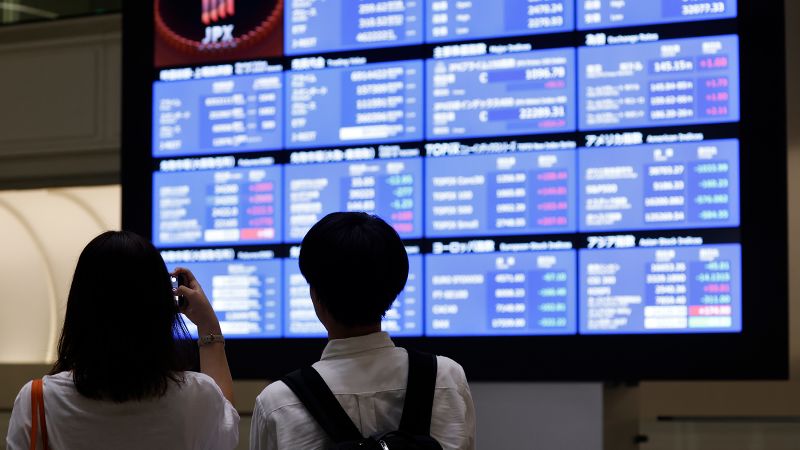The recent comeback rally in Japanese stocks came to a halt as concerns about a potential US economic slowdown and further yen volatility weighed on global financial markets. The Nikkei 225 ended down 0.7% after a two-day winning streak, while the yen strengthened 0.6% against the US dollar. This decline followed a surge in the benchmark Japanese index in the previous two sessions, which was sparked by central bank officials’ comments offering reassurance to investors.
The chill in the markets spread to Europe, with the Stoxx Europe 600 Index down 1% and major indices in Germany, France, and the UK also posting losses. US futures indicated a weak start for stocks on Wall Street, with S&P 500 and Nasdaq futures lower. The recent volatility in global markets has been partly driven by a surge in the yen, which forced many investors to unwind carry trades, exacerbating declines in equity markets worldwide.
Bank of Japan deputy governor Shinichi Uchida sought to calm nerves by stating that policymakers would not raise interest rates during unstable financial market conditions. However, concerns about a potential US economic slowdown and the value of the yen continue to haunt the market. The recent market turmoil, triggered by the BOJ signaling a more hawkish monetary policy stance, has highlighted the interconnectedness of global markets and the impact of diverging monetary policies.
Analysts have expressed concerns about the volatility in the yen and its impact on global financial markets. The potential for a US economic slowdown, misaligned monetary policies, and geopolitical tensions in the Middle East are casting ominous shadows over financial markets. The lingering uncertainty in the markets underscores the need for caution and careful risk management for investors navigating the current environment.
As the US political election approaches, the markets could face increased volatility. Analysts suggest that investors should avoid making significant portfolio moves based on specific election outcomes at this stage, given the uncertainty surrounding the race. While uncertainties remain, with the global trading environment remaining unpredictable, investors should stay informed and adapt their strategies accordingly to navigate the evolving market conditions.
In other Asian markets, South Korea’s Kospi and Taiwan’s Taiex experienced declines, breaking their two-day winning streaks. Hong Kong’s Hang Seng traded flat. The broader global trading environment remains uncertain, with several factors contributing to market volatility, including central bank policies, geopolitical tensions, and economic indicators. Investors should stay vigilant and monitor developments closely to make informed decisions in the current market landscape.


